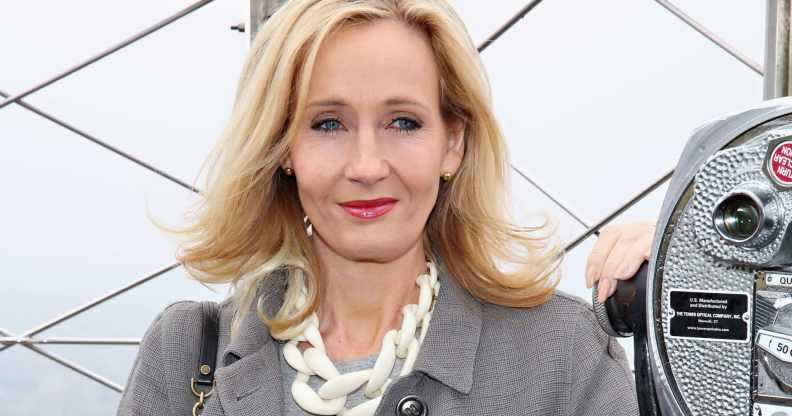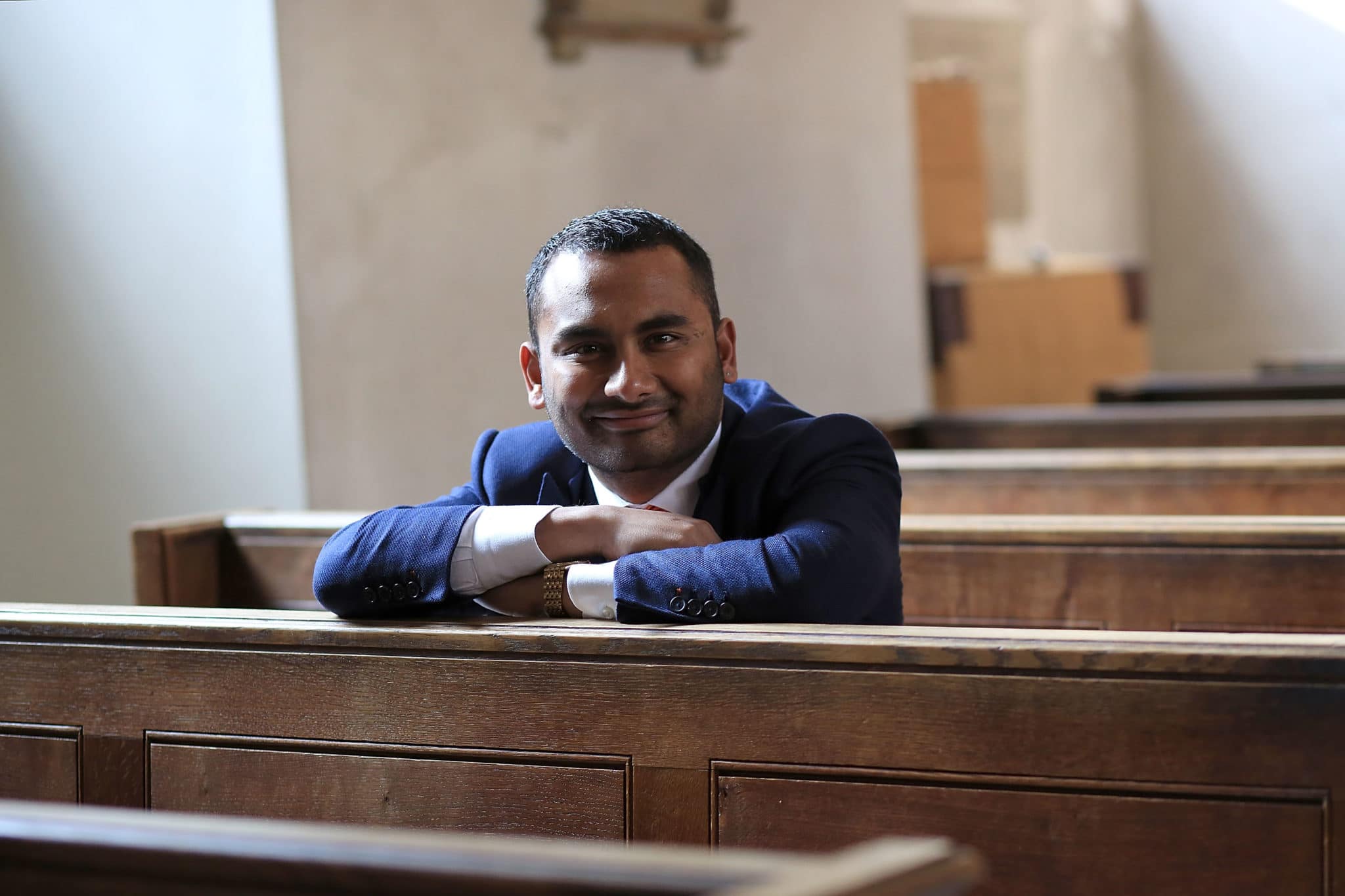BBC media editor applauds JK Rowling’s ‘bravery’ and names error-strewn transgender essay one of the best reads of the year

Author JK Rowling (Getty /Cindy Ord)
BBC News has published a blog in which media editor Amol Rajan applauds JK Rowling for the discredited, error-strewn essay in which she aligned herself with ‘gender critical’ activists.
Amid rows over the broadcaster’s enforcement of ‘balance’ rules relating to transgender people – after incidents in which trans guests were told they must appear alongside gender critical cis women – an end-of-year roundup posted on the BBC News website hailed Rowling’s essay as one of the best reads of 2020.
In the post, Rajan insisted he was taking “absolutely no view whatsoever on the issues that she raises” as he lauded the “bravery” of both Rowling and Suzanne Moore, a newspaper columnist who voluntarily left her job at The Guardian last month and has since suggested she was “silenced” for her views on transgender issues.
He wrote: “I do take an issue on abuse and trolling, and Rowling has achieved the inglorious honour of topping many a league table for those.
“The deluge of hatred that she faced before writing this blog made it brave, and it was nothing compared to what came after. Talking about bravery, so too, by the way, was Suzanne Moore’s engrossing, long, personal essay for Unherd on why she left the Guardian.”
Suggesting that what he “most admired about the writing was the plain English,” he added: “We should all applaud bravery in writers – even those with whom we disagree.”
BBC media editor praises JK Rowling on ‘free speech’ despite author’s legal warnings
Rajan clarified that he is “not endorsing the argument” put forward by Rowling, adding: “Offence is the price of free speech. Those offended felt she was questioning their identity and even attacking their human rights, which they argue is a form of discrimination or hate speech.”
Of course, people did not simply feel “offended” by Rowling’s blog: They took issue with the multitude of debunked claims and misleading assertions in the nearly 4,000 word-long post, many of which were not highlighted by outlets parroting its content.
The media editor’s suggestion that Rowling is a paragon of “free speech” on transgender issues comes just months after an independent children’s outlet, The Day, made a payout to settle a dispute with the author over an article that suggested some may describe her as transphobic.
On a previous occasion in May, a transgender activist retracted a Twitter post aimed at Rowling for suggesting the author should not be around children.

BBC media editor Amol Rajan praised JK Rowling (Getty/John Phillips)
At the time, Rowling had publicly responded: “Unless you want to hear from lawyers, you might want to rethink that tweet. I’m not wasting my time arguing with wilful misrepresentations of my views on transgenderism – your timelines show you’re not big on truth – but making serious insinuations like this comes with consequences.”
Rajan’s praise for Rowling’s blog comes less than two months after the new BBC director general issued guidance that staff must avoid “virtue signalling” and expressing views on “matters of public policy, politics or controversial subjects”.
BBC News is yet to balance Rajan’s post with one from a transgender person who does not agree with Rowling’s work, despite recent reported interventions from the broadcaster’s editorial policy unit to ensure “opposing views” are included when trans people are given a platform.
Broadcaster under scrutiny over approach to trans issues
Appearing before parliament last week, the head of media regulator Ofcom warned that it was “extremely inappropriate” for the BBC to balance contributions by transgender people with mouthpieces for anti-transgender hate groups.
The warning came after Scottish National Party MP John Nicolson, himself a seasoned former BBC news broadcaster, noted that an online report on healthcare waiting times for transgender people was altered to include unrelated trans-hostile commentary from the pressure group LGB Alliance.
Nicolson said: “I noticed that the BBC seems to be under the impression that it’s got to ‘balance’ all its reports about trans issues so by calling in transphobic groups like the so-called LGB Alliance to give a counter-argument.
“I think this is absurd because you would never do a report on racism, for example, and call in a racist organisation to say that they don’t think that Black people have a right to equality.”
Ofcom chief executive Melanie Dawes responded: “I think it’s a very good point and actually a very good example of something that that we’ve been talking to Stonewall about, actually… about how can the broadcasters, when they do feel they need to bring balance into a debate, do it in an appropriate way, rather than in the way that you just described, which can be extremely inappropriate.”

